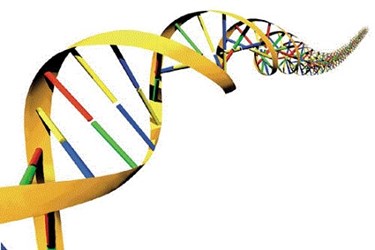Mars And IBM Tackle Foodborne Pathogens Through DNA Analyses
By Laurel Maloy, contributing writer, Food Online

This collaborative effort is aimed at utilizing genomics to better understand what makes foodborne pathogens tick and then share this knowledge to make the food supply chain safer
Considered to be the single largest study ever, Mars, Inc. and IBM Research are exploring metagenomics in an effort to better understand what makes food safe, or unsafe. This advanced process enables the identification of microorganisms directly from environmental samples, regardless of the difficulty faced with growing organisms in a petri dish. By examining the DNA of microbial communities, the entire structure and each of its functions within a specific environment, can be ferreted out. There is potential to unravel many of the secrets these microbial communities now hide; secrets that could result in the discovery of new molecules in order to provide new solutions for therapeutic and biotechnical applications.
It is estimated that there are 3,000 deaths and $9 billion dollars spent in medical costs due to foodborne illnesses each year. Those are just the figures for the U.S. This fact sheet from the U.S. Department of Agriculture (USDA) lists all of the most-common foodborne illnesses and diseases, from Botulism to Salmonella. These germs and parasites lead to unbelievably high numbers. The Centers for Disease Control and Prevention’s (CDC’s) Foodborne Outbreak Online Database (FOOD), has compiled information from June of 1998 to February of 2012, but already consists of 829 pages of reported foodborne illnesses. The ever-growing numbers prompted President Obama to sign into law the Food Safety Modernization Act (FSMA). The President’s and associated governmental agencies’ commitment has spawned many new partnerships and has resulted in monies being dedicated to increasing research. Other research borne of FSMA is Rapid Whole-Genome Testing, providing the technology to more quickly link outbreaks by DNA testing.
Dave Crean, V.P., Corporate Research and Development at Mars, Inc., is predicting that the Consortium could “revolutionize” food safety. The Consortium’s work will begin at the factory level, where the factors that influence microorganism activity on a normal, daily basis can be categorized and understood. The future holds great promise for the entire global food supply chain, from tilling to table. Science-based practices will be used to understand how bacteria interact and how pathogens, viruses, and/or fungi grow and reproduce in different environments. Also early on the radar will be select raw materials, with the Consortium eventually extending its research up and down the entire global food supply chain.
Mars Inc.’s production facilities will provide the first environmental data samples. From there, IBM’s analytical experts in genomics and healthcare will use IBM’s Accelerated Discovery THINKLab to process the data. The THINKLab is the ideal environment for the extensive computational and data-mining obligations of this project. The joint findings will then be widely disseminated so as to share the information for collective use of the testing techniques by those in the industry that will benefit.
The Consortium will be looking to add additional members to its team. It will look to academia, the government, and to the food industry for experts in their fields. IBM calls their creative innovators Wild Ducks. These are the visionaries who are never satisfied with “that’s just the way things are,” but are always looking to science and technology to confront the world’s primary problems. Are you, or do you know a Wild Duck? If so, get in touch with IBM.
